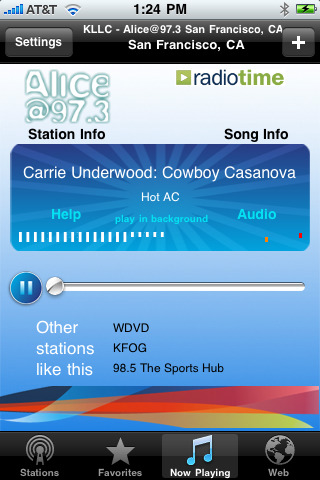

While the unlimited skips system allowed by most streaming platforms today is convenient, discovery suffers when any song can be ended in an instant. I discovered artists like Best Coast, Daughter, Tegan and Sara, and many more sitting through tracks that I might have just skipped otherwise. While this was a nuisance, it made listeners take in new music that they might have skipped otherwise. Much like Pandora, TuneIn, and other internet radio platforms, 8Tracks only permitted three skips each hour. To me, 8Tracks functioned less as a platform to post about the band you’re interested in this week, but the one you have on a poster of on your bedroom wall the music you posted mattered.Īnother part of why 8Tracks was so special came from one of it’s biggest flaws, the lack of skips that users were allowed. I chose music for my playlists that I deeply cared about, music that I still care about just as much in 2019 as I did years ago. Looking at my own account, I found playlists filled with tracks that I amassed throughout my teenage years - Vampire Weekend tracks, deep album cuts from FKA Twigs’ LP1, and glitchy M.I.A songs. This reliance on users’ MP3 files for sourcing music meant that one’s 8Tracks profile was also a look into their own music collection. Most of the playlists found on the site were sequenced, arranged, and created with a concise, singular intention. There was no room for throwaway tracks or constant updates to one’s playlist - something that’s easy to do in the age of 20+ hour, 300-track Spotify playlists. This personalization also meant that the songs added to a playlist were something that users truly wanted to share. “It was very personal… all of the playlists would have cover photos and the moods they wanted the listener to feel listening to it along with a description”.

This meant that 8Tracks playlists had a level of personalization that no one else offered at the time, something that Emerson student and former 8Tracks user Delaney Katz believes. To make a playlist, users had to upload their own MP3 files to the site and along with their own cover art and track listings. Unlike Spotify or Apple Music’s numerous playlists made by companies, algorithms, or the services themselves, 8Tracks relied on users to bring their own tastes to the table. One of the things that made 8Tracks so unique was its user-specific creation of playlists. So, what was so special about 8Tracks, and why hasn’t that magic been recaptured today? Every time I mention 8Tracks to other past users, it’s almost always met with an instant sense of excitement, as people begin to rattle off playlists they made, artists they discovered, and songs they cherished during their time on the site. The site’s peak popularity was in 2013, before sharply declining with the rise of Spotify and Apple Music. Unlike other internet radio services at the time, the site’s aim was to create a social network of playlist creators and listeners, relying on the creativity and music knowledge of its users for what one would hear on the site. 8Tracks was created by David Porter in 2008. As I plummeted down the internet rabbit hole late last week, I found myself back on a website that I thought I had escaped from years ago, 8Tracks.


 0 kommentar(er)
0 kommentar(er)
